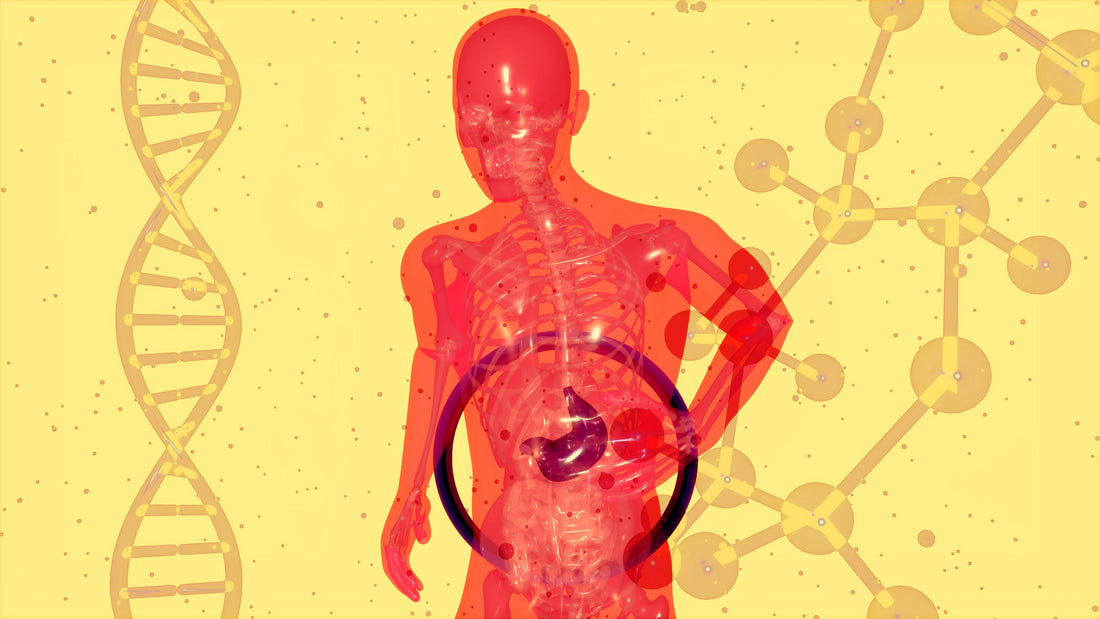Were you aware that gallstones affect up to 1 in 7 adults in the United States alone? That means that millions of people suffer from this issue in the USA, and the numbers when accounting for the entire world are even higher.
A commonly asked question is: can stress cause gallstones, this potentially deadly ailment? In order to answer this question, we first have to understand what gallstones are, and the factors influencing how they form in the first place.
This article aims to give information on what gallstones are, how serious they are as a medical condition, and whether or not stress can cause them to develop.
Gallstones: An Overview
Colelithiasis, more commonly known as gallstones, are deposits of bile (digestive fluids) that are of a hardened or stone-like composition. These deposits develop in the gallbladder. The name gallstones is derived from them forming in the gallbladder, and their hardy composition, resembling a stone’s hardness.
There are usually two different types of gallstones, namely the pigmented type, which can take on a black or brown color, and forms when bilirubin is present in excessive amounts in the bile, and the most common form of gallstones, namely cholesterol gallstones.
Women are generally more at risk of developing gallstones than men are, with women between the ages of 20 and 60 years of age, and men above 60 years of age, having the highest risk of developing gallstones.
Additionally, people with comorbidities such as diabetes are also at an increased risk of developing gallstones, as well as people on certain kinds of medications, an example of which are people who take cholesterol-lowering drugs and anticonceptional medicine.
People with liver health issues, and those with a family history of gallstones, are also at high risk of developing gallstones at some point in their lifetime. Liver issues stemming from drinking alcohol or nicotine abuse may also lead to increased chances of developing this issue.
Last but not least, people experiencing constant (chronic) stress are also at a greatly increased risk of developing gallstones.
Most gallstones cases are asymptomatic, but when symptoms do show, these include:
- Pain (sharp or dull) in the right side of the abdomen, just below the ribs. This pain may sometimes last for up to 12 hours, and may increase in intensity if medical attention is not sought out.
- As a result of the colicky pain described above, nausea and vomiting typically happen right after a pain flare-up.
- Yellowing of the white part of the eyes (sclera), or of the skin, also known as jaundice.
- The passing of dark colored urine and light colored stool without any other readily apparent reason.
It is worth noting that gallstones can be a life-threatening condition, even in asymptomatic cases, and it is very important to get periodic check-ups at the doctor’s office to verify that you are free from gallstones, or to treat the issue if gallstones are discovered.
How Dangerous Are Gallstones?
Gallstones can become a very real and serious danger if they block the gallbladder, a scenario which most often leads to gallbladder infections, which tend to be severe and life-threatening on occasion.
On rarer occasions, gallstones can pass into the bowels and block them, meaning that food may no longer pass through, which leads to severe abdominal pain over time, along with vomiting, and a whole entire host of other issues resulting from having one’s bowels blocked by gallstones.
During serious cases, surgery is the method through which medical professionals remove gallstones from the gallbladder or the bowels. The surgery to extract gallstones, like any other surgery, is not risk-free, although it is considered overall safe.
Gallstones may also cause blockages in the pancreatic duct, leading to a condition known as pancreatitis, which means that the pancreas suffers from inflammation, which can lead to symptoms such as fever, nausea, swelling and other complications, some of which can pose a serious danger to your health.
It is then absolutely safe to say that gallstones, while relatively harmless most of the time, do possess quite a deadly potential if left untreated, especially if they pass into other areas of the body where they’re not supposed to be, causing further damage and pain to the sufferer.
Let’s now move on to the last section of this article, where we’ll find the answer as to whether stress may cause gallstones or not.
Can Stress Cause Gallstones?
The answer to the question posed in the title of this article is yes, stress can cause gallstones, especially when the stress is chronic in nature, and the stress levels are constantly high.
Stress can cause gallstones to appear in individuals who would otherwise have been at little to no risk of getting them. This is because of how stress negatively affects the human body, particularly the liver.
The liver’s endocrine and physiological mechanism becomes, during stressful periods, disturbed, which means it begins functioning abnormally.
This leads to the liver producing bile that is high in cholesterol or bilirubin. This bile then gains a hard consistency as a result, while on its way through the urinary system to be excreted, and may sometimes, due to its hardy composition, become stuck in the gallbladder, leading to the condition known as gallstones.
When the liver functions abnormally as a result of stress, the bile cannot dissolve the excess amounts of cholesterol or bilirubin, which leads to gallstones in the way described in the paragraph above.
Conclusion
Gallstones are a very serious medical issue that should be addressed immediately, in order to prevent serious, life-threatening harm from occurring to the body.
Stress is one of the most common causes for gallstones, especially in otherwise healthy and not at-risk individuals, and its effects can exacerbate the problem further by making it a constant, recurring issue, as long as the underlying stress remains unaddressed.
It is then incredibly important to manage your stress levels properly, and keep them as low as possible, to prevent gallstones and other serious and potentially life-threatening issues from developing as a result of excessive stress.
I wish you good health and a stress-free day. Take care.





